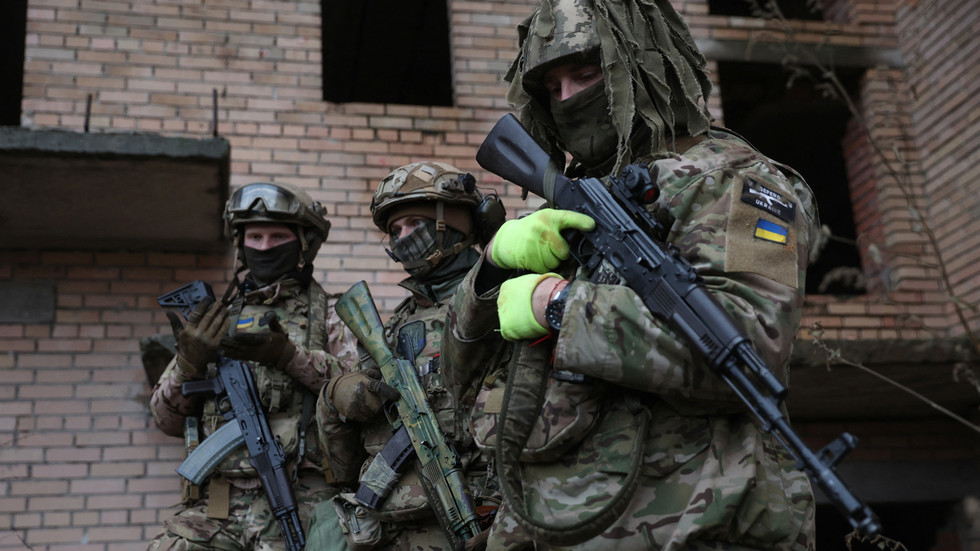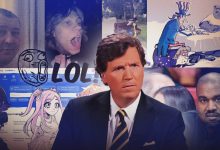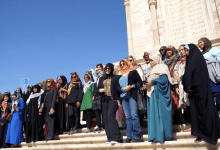
The brutal treatment of ‘collaborators’ could extend to millions of people
By John Varoli, veteran journalist who holds a dual degree in Russian Studies and the History of US Foreign Policy from Cornell University. He has worked with both Russia and Ukraine since 1992, including 15 years as a foreign correspondent for major media such as the New York Times, Bloomberg News and Reuters TV. His personal blog can be found on Substack
Ukrainian soldiers train in Donetsk region © Anatolii Stepanov / AFP
Nine years ago, about eight and a half million people lived in Donbass and Crimea, according to Ukrainian statistics. Most of them spoke Russian as their native language. Many of them identified as ethnic Russians. All of them are now considered by Moscow to be Russian citizens. Thus, if the NATO-backed regime in Kiev re-conquers those regions, then then are fears that retribution against the locals could be ruthless and bloody.
At first glance, the conflict as it unfolded in Donbass and Crimea starting in 2014 appears to be a classic textbook case of separatism. An ethnic minority – of Russians, in this instance – wants to be independent and to reunite with the Motherland from which it was cut off decades ago when Soviet leaders drew arbitrary borders.
Kiev wants to eradicate the cultural identity and political autonomy of this ethnic minority. Therefore, members of the minority rise up in rebellion. Quite straightforward. Right?
The issue, however, is much more complicated due to the geopolitical confrontation between NATO and Russia. For eight years, Donbass and Crimea have been pieces on the chessboard of superpower rivalry and now they’re on the frontline of Europe’s most devastating conflict since the 1990s Balkans wars.
Read more
When NATO and the Kiev regime talk about “liberating” Crimea and Donbass, what they really mean is they’re determined to eradicate the ethnic identity of the local Russian population and to weaken, if not destroy, the Russian Federation.
Rubicon crossed
NATO and Kiev officials are obsessed with seizing full control of these disputed regions, and there’s no limit to the blood and treasure they’re willing to sacrifice toward that goal. However, entirely absent from their plans are details about what will happen to the local Russian population in case of their victory.
More than a million people in the Donbass applied for and received Russian citizenship between 2019 and the moment the areas became part of Russia in 2022, because it’s a country to which these people are bound by blood, language and culture. After the regions (collectively dubbed “new Russian territories”) joined Russia, all their inhabitants became Russian citizens from Moscow’s point of view. They can opt out and are not required to renounce their Ukrainian citizenship.
Under international law, Moscow has a right to protect its citizens no matter where they might be. According to the Western media narrative, however, the conflict in Ukraine began on February 24, 2022 when Russia “invaded” Ukraine in an effort to “destroy” the country and “to rebuild the Soviet Empire.”
The reality, of course, is quite different. Here’s a brief overview of how the conflict really began, almost nine years ago.
On February 21, 2014, with US support, a violent insurrection in Kiev toppled the democratically elected President Victor Yanukovich, who is from Donbass. Not surprisingly, his supporters across eastern and southern Ukraine resisted the new US-backed regime in Kiev.
As Ukraine crumbled into anarchy in spring 2014, Crimea held a referendum and quickly reintegrated into Russia. The two Donbass regions – Donetsk and Lugansk – soon declared their independence from Kiev. The Donetsk People’s Republic and the Lugansk People’s Republic were born, but didn’t join Russia at the time.
Kiev responded by bombing Donbass, arresting “separatists” and launching an “Anti-Terrorist Operation.” On May 2, 2014, nearly 50 pro-Russia demonstrators were burned alive inside the Trade Unions House in Odessa. The Rubicon had been crossed. In 2014-15, more than a million Ukrainians fled to Russia.
Canceling ethnic Russians
While NATO and Kiev talk about “democracy” and “freedom,” they fail to apply these concepts to the Russian citizens in Crimea and the new territories, which became part of Russia in September after holding referendums on the question.
Today, Kiev and NATO insist they’re fighting “totalitarian Russia” to protect the “rules-based order.” Yet, NATO refuses to recognize those referendum results. And Western journalists –often reporting from Washington, London and Kiev– have concocted a bizarre and false narrative that the people in these regions are held captive, living under a ‘brutal’ Russian occupation.
Read more
The right to self-determination is a fundamental principle of international law, enshrined in the United Nations Charter. The concept was embraced by US President Woodrow Wilson to justify entrance into World War I. The US fought to “Make the World Safe for Democracy” and to free European nations –Poles, Czechs and Serbs– from Austrian and German rule.
Why can’t the people of Crimea and the new Russian territories also enjoy such rights? Despite disinformation spread by Western media, NATO leaders are well aware of their own hypocrisy. So, what to do when lofty American principles clash with Washington’s geopolitical ambitions? Alter the facts to fit the narrative!
The West has effectively canceled the Russians of Crimea and Donbass. Voila! Everyone residing in those regions is automatically ‘Ukrainian’ – no need to ask what they think, what language they speak or how they identify ethnically. In Western reporting this matter is glossed over, and not because modern Ukraine is welcoming to those of any ethnic or language background. It’s the opposite – the Kiev regime’s goal is a purified Ukrainian state where everyone speaks Ukrainian and embraces the national identity. There’s no room for other ethnicities (or at least, no room for a certain other hated ethnicity) in their vision for Ukraine.
Ethnic cleansing on the horizon?
This brings us to the main dilemma – if Kiev and NATO win, what happens to the Russians living in the regions they will have ‘liberated’? This is the question I posed to both former and current US government officials and experts. But no one would answer. So I searched online. Likewise, nothing. No detailed information on Kiev’s post-war plan. Their silence is sinister.
Therefore, let’s look at what has already happened in territories ‘liberated’ by the Ukrainian Armed Forces (UAF) in the past nine months. Retribution against pro-Russian locals in the Kharkov and Kherson regions was quick and furious, with ‘filtration measures’ used to round up and punish ‘collaborators’, allegedly including extrajudicial killings.
Also, we can see how on a daily basis the UAF indiscriminately shells and terrorizes civilian centers in Donbass, racking up horrendous civilian casualties.
Let that thought sink in – Kiev considers these people to be its own (since it doesn’t recognize the Donbass regions as Russian). Yet, it bombs them ruthlessly every day. How much greater will be the slaughter if the UAF ‘liberates’ Donbass and Crimea from ‘Russian occupation’?
Shutting down free speech
In the past 25 years the world has seen many cases of separatism. Most prominent among them are Kosovo, and South Sudan. Both have enjoyed Western support and, so, their ambitions have been quite successful.
Read more
Yet, many other groups yearning for independence are ignored by Western powers. Clear and indisputable facts about the pro-Russian sentiment among the people of Donbass and Crimea are dismissed by the West as “Russian propaganda.” Anyone who dares to question and doubts the NATO narrative is smeared as a “Putin puppet.”
The goal of such malicious name-calling is to shut down free thought and debate. Crimes are best committed in silence, far from the light of truth and transparency. Censorship is the refuge of rogues and villains whose views and ideas are unable to withstand intellectual scrutiny and inquiry.
This is why no one in NATO and Kiev wants an honest discussion about the future of Crimea and the new Russian territories, and of the people living there.
We can be certain – a Kiev victory means that innumerable locals will have to flee their homes and thousands will be declared ‘collaborators,’ and subjected to all kinds of punishment, probably even including executions. Russians and other ethnic minorities are not welcome in a radical nationalist Ukrainian state that seeks to be cleansed of Russian influence.
Welcome to NATO’s “rules-based order.”
The statements, views and opinions expressed in this column are solely those of the author and do not necessarily represent those of RT.




